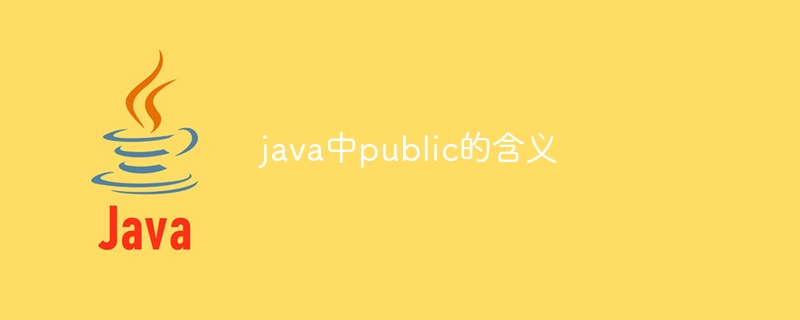
The public access modifier in Java allows a class, method, or field to be accessed from anywhere, including the class, subclasses, and different packages. It indicates that the element has the most permissive access level, which can improve code reusability and extensibility.

The meaning of public in Java
In Java, public is an access modifier used to control classes , method or field visibility. It means that the element can be accessed from anywhere, including within the class, subclasses, and different packages.
Access Levels
There are four access levels in Java, arranged from loosest to strictest as follows:
The role of public
Declare a Elements that are public have the following effects:
Example
// 公有类
public class Person {
// 公有字段
public String name;
// 公有方法
public void sayHello() {
System.out.println("Hello, my name is " + name);
}
}In this example, the Person class, name field and sayHello() method are all public and therefore can be accessed in any class and use.
Importance
The public access modifier is important for creating components that are accessible in different parts of the application, including different packages. It improves code reusability and extensibility.
The above is the detailed content of The meaning of public in java. For more information, please follow other related articles on the PHP Chinese website!




